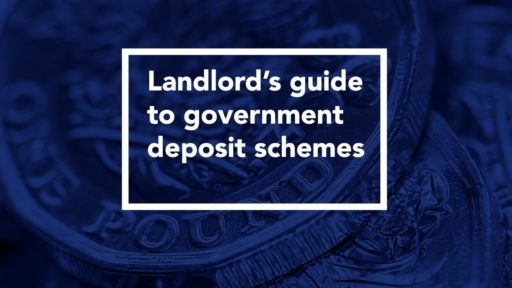Do your tenants work from home?

The trend of working from home has been one of the most significant cultural shifts in recent years and decades. Back in 1981, only 1.5% of employed people worked mainly at home. By 2019 increased demand for flexible working had seen this figure creep up to 4.7%.
But, the impact of the COVID-19 pandemic on home-working was significant. Government mandated home working saw 43.1% of people working from home by April 2020. As restrictions eased, many had become accustomed to some form of home working, and by 2021 85% of those working from home wanted a ‘hybrid’ approach of mixing home and office working.
Homeworking is now not only common, but it seems to be here to stay. However, if you are a landlord you may be considering whether tenants working from home has implications for your property, your mortgage, or your insurance.
- Are tenants allowed to work from home?
- Can a tenant run a business from a rented property?
- How will I know a tenant is conducting business from my property?
- Is a different type of tenancy agreement required?
- What is the impact on insurance?
Are tenants allowed to work from home?
Normally, yes. A certain level of homeworking is normally permitted under an Assured Shorthold Tenancy agreement. If a tenant is employed by a business that isn’t registered to your property, it’s normally acceptable for them to work from home. Similarly, if the tenant owns a business that is based elsewhere, it’s usually fine for them to work from home part of the time. For example, they might own a beautician’s business but do their admin in their home office.
Carrying out office-based work
The most common type of homeworking is office-based work, which most landlords are normally happy to allow. There can be benefits for the landlord too; if you’re looking for new tenants you may find your property is more attractive if you are flexible in your approach to home-working.
Disruptive work or activities that increase wear and tear
While most landlords are comfortable with tenants who do office-based work, other activities can be more problematic. For example, some activities can increase the wear and tear on your property. One example might be a tenant repairing cars on your driveway or in your garage – this would increase the likelihood of accidental damage to your property, could result in unsightly and hard-to-remove oil spills, and could negatively impact the neighbours.
Can a tenant run a business from a rented property?
Working from home is distinct from running a business from your property. If a tenant is running a business they are not employed by someone else and they are using your property as their principal place of business. It is legal for tenants to run a business from a rental property, but there are certain rules they must adhere to. It’s also possible for landlords to refuse to let a tenant run a home business, but there is a restricted number of grounds for doing so.
Running a home business (Small Business, Enterprise, and Employment Act, 2015)
Before 2015, many landlords refused to let their tenants run businesses from their property. This changed when the Small Business, Enterprise and Employment Act, 2015 passed into law.
This Act made it possible for tenants to run a ‘home business’ from a rental property without the Landlord having to turn the tenancy into a business tenancy governed by the Landlord and Tenant Act (1954) (LTA). This is good news for landlords as not only do business tenancies have mortgage and insurance implications, but they can mean the tenant becomes eligible for automatic lease renewal.
The LTA defines a home business as “a business of a kind which might reasonably be carried on at home.”. However, this excludes a business involved in the supply of alcohol to be consumed on the premises. The property must remain primarily residential, which generally means that no more than 40% of it should be used for commercial activities.
Do I have to allow tenants to run a home business?
Firstly, if a tenant wants to run a home business from your property they must get your permission in writing. However, you are not allowed to ‘unreasonably’ refuse a request. Practically speaking, you’ve got three grounds on which you can reasonably refuse. These are:
- Changes to your mortgage
If your mortgage specifies that your property must remain principally residential, you can veto tenants from running a home business. You can’t be forced to change your mortgage. - Wear and tear
If the activity is likely to result in significantly more wear and tear to your property you can refuse. - Nuisance
You can turn down a request to run a business from your property if it is likely to cause a nuisance. This might include noise from power tools or additional footfall, or parking issues caused by clients or customers.
Home businesses are often office based. So, if your tenant wants to run a business in marketing, copywriting, customer service, secretarial services, law, or something similar, there’s unlikely to be any major impact on your property. However, before giving your permission, make sure you fully understand how the business will operate. For example, if your tenant wanted to run a mail-order business, it’s quite possible that they’ll use more than 40% of the property to store items. In such a case you could justifiably refuse permission.
What about hobby businesses?
Hobby businesses are increasingly common. For example, growing numbers of people make extra money by auctioning items on eBay, or selling items they’ve made like jewellery, knitwear, or paintings on sites like Etsy. As with the above, you’ll need to be sure your tenant’s request won’t invalidate your mortgage, increase wear and tear, or cause a nuisance.
How will I know a tenant is conducting business from my property?
When you are selecting new tenants always ask them what they do for a living and how frequently they are likely to work from your property. Robust tenant referencing should also highlight whether a person is self-employed or runs their own business. In addition, regular property inspections should bring any obvious business activities to your attention.
Is a different type of tenancy agreement required?
If new tenants want to run a home business from your property, it’s possible to offer them a dedicated Home Business Tenancy. This is essentially a type of Assured Shorthold Tenancy (AST), but one that permits the operation of a home business. Alternatively, you can draft a supplementary Home Business Agreement for tenants who already have an AST.
The big advantage of going down this route is that it means you avoid accidentally giving a tenant a Business Tenancy, which could, in theory, grant them a tenancy for life under Part 2 of the Landlord and Tenant Act 1954. This would completely change your landlord responsibilities, not to mention potentially invalidating your mortgage and insurance.
It’s best to have a Home Business Tenancy or Home Business Agreement professionally drafted. Make sure it has clauses that stipulate that there will be no impact on neighbours or wear and tear, and that all business will be carried out in a legal manner.
What is the impact on insurance?
If your tenant is employed and occasionally works from home, there should be no impact on your landlord insurance as long as their activities don’t lead to nuisance or excessive wear and tear. However, if in doubt you should always check with your insurer before agreeing to anything.
On the other hand, if your tenant is running a business from your property, it’s important to realise that a standard landlord policy may not cover business use. You may even need commercial property insurance. So, before agreeing to let your tenants use your property for their business, gather as much information as you can about their proposed activities. You can then inform your insurer who will judge the new circumstances independently. It’s better to make sure your cover is valid, rather than risk having any future claim turned down.
Our landlord knowledge hub offers professional guidance, advice, and tips. For more information on landlord insurance, give the team a call on 01603 216399.




